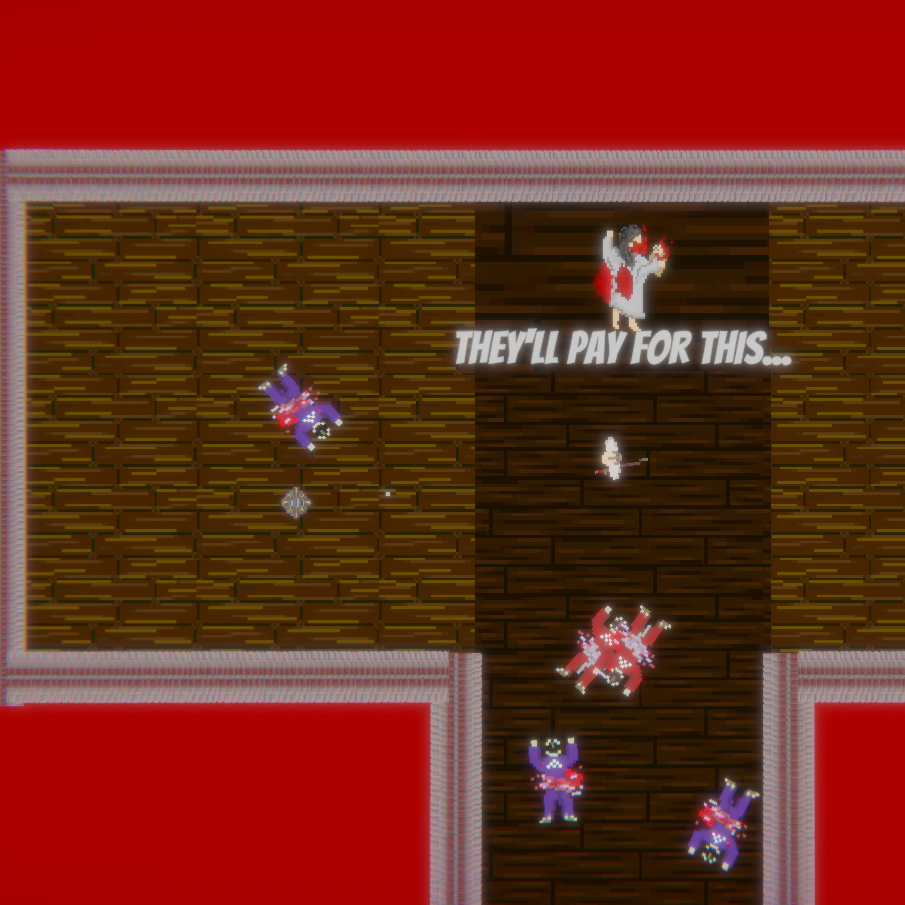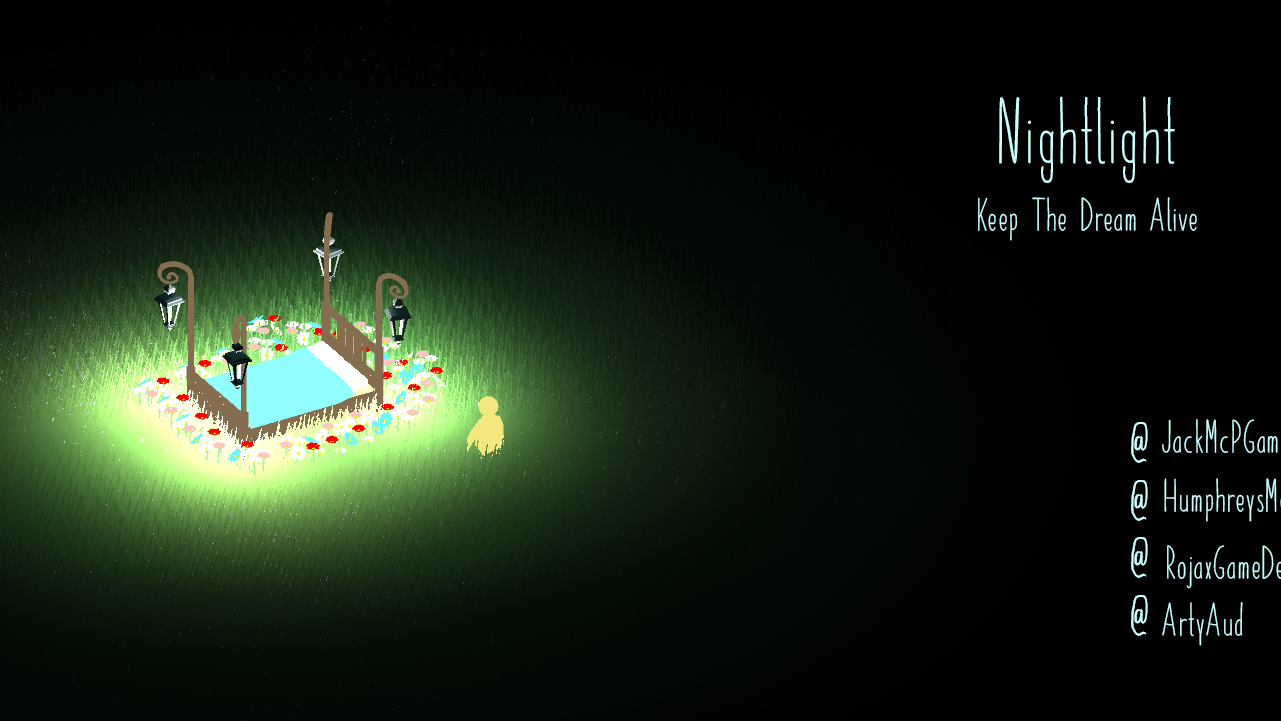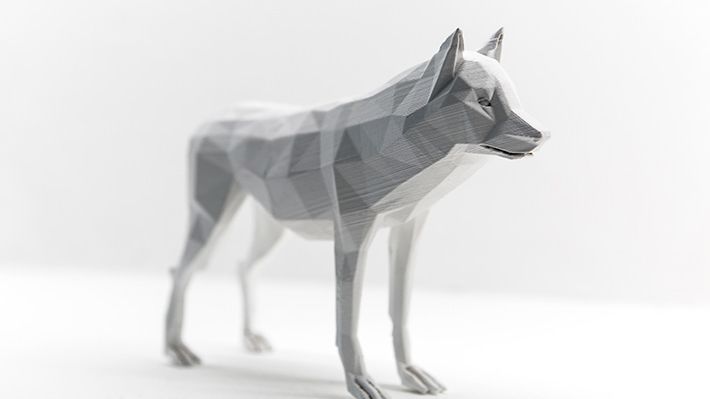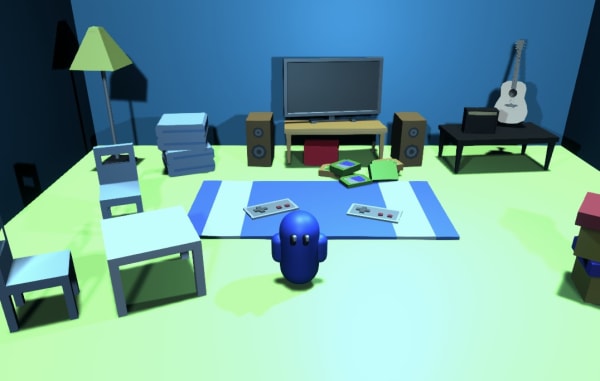Video Game Design University Courses Uk
Re-approval
Please note this course is undergoing re-approval. This is the process by which we ensure the course continues to provide a high-quality academic experience. During re-approval there may be some changes to the course content displayed on this page. Please contact us if you have any questions about the course.
Open Days
The next online Open Day for this course will be announced soon.
The next College Tour for this course will take place on Saturday 27 November.
Follow on Twitter
@GamesDesLCC
Online Open Day
(Recorded October 2021)
-

Arthur Audren de Kerdrel. 2020, BA (Hons) Games Design, London College of Communication, UAL.
Game by: Arthur Audren de Kerdrel
-

Jack McPherson, Arthur Audren de Kerdel, and Jack Roper. 2020, BA (Hons) Games Design, London College of Communication, UAL.
Game by: Jack McPherson, Arthur Audren de Kerdel, and Jack Roper
-

Anthony McCarthy. 2020, BA (Hons) Games Design, London College of Communication, UAL.
Student Voices: Henry Threadwell
Graduate Henry talks about his time and experience on the course, as well as his game 'Too Many Cooks' which he took to one of the biggest gaming conventions in Los Angeles.
Student Voices: Anna Poliakova
Anna is a graduate from the course who created a puzzle game where you can only use each movement once. Here Anna talks about her time on the course.
-

Students in the Digital Space. London College of Communication, UAL. Photograph: Alys Tomlinson
The Digital Space is an open-plan, creative hub with computers set up with specialist software.
-

Image © Lewis Bush
Discover the range of resources on offer to students studying Animation and Games Design.
-

Student in Creative Technology Lab, 2020. London College of Communication, UAL. Photograph: Tim Boddy
A multi-purpose space that supports students with: Creative Coding, Physical Computing, Projection Mapping, Games, and Virtual Reality.
-

Anino Ogunjobi discusses how her new role will bring opportunities to both her own creative practice and the wider Screen School community.
-

Luca Cavozzi, BA (Hons) Games Design and Kelly Phare and Diana Place, BA (Hons) Fashion Styling and Production at London College of Fashion, have won third place in the Games Innovation Challenge 2021 with their game, Found Guys VS.
-

We chat to LCC graduates Finn Fleming (OFFBRAND) and Herman Ho (Wordplay Games) about their experiences of the annual games development competition, as well as their time at the College.
-

London College of Communication has won The Independent Game Developer's Association (TIGA) Games Industry Award for Education Initiative and Talent Development for the Games Fusion Project.
Course overview
BA (Hons) Games Design will teach you how to take the software tools of games design and create new gaming experiences. Explore skills sought by industry, such as storyboarding, coding and play testing which will enable you to translate your ideas into playable games.
Working from original concepts, you will develop ideas and test them to evaluate their experience of play. You'll not only design the players interaction with the game mechanics but also the visual feedback needed to communicate the player's progress, the various gamestates and the behaviours of individual game objects and characters.
This concept-to-game approach is supported by the growing theoretical area of games studies.
What to expect
- You will be taught in a way that encourages you to regularly generate new concepts and to remain innovative in your practice.
- You'll learn the design and development skills necessary to put you at the forefront of this growing profession and which are sought after by leading design and software companies worldwide. Key topics covered include interactive design, the psychology of games, designing the experience of play, computer programming and 3D modelling.
- You'll learn how to write game design documents starting from the initial concept, before mastering the various stages of development.
- Put your newly acquired skills into practice as you continually build playable games throughout the course. During this process, you'll demonstrate storyboarding and visualisation techniques to communicate ideas with linear or non-linear content.
- You will also be expected to analyse gaming trends and identify unique selling points to build into the game's hooks and features; to create your own animated content, adding functionality with scripting before testing for performance and usability.
- The final major project gives you the opportunity to research an aspect of games design that is of particular interest to you and to present your findings in a dissertation.
Between Years 2 and 3 of the course, you'll also have the opportunity to undertake the following additional UAL qualification:
Diploma in Creative Computing: An optional, year-long opportunity which allows you to develop the computational skills that are shaping the future of the digital creative industries. After successfully completing the Diploma and the final year of your undergraduate degree, you'll graduate with an enhanced degree title: for example, BA (Hons) Games Design (with Creative Computing).
Course Structure
The academic year for this course is divided into 2 blocks.
The 1st block is of 15 weeks' duration from late September to mid-February. In accordance with the University timetable, there will be a four week holiday in December.
The 2nd block is also of 15 weeks' duration from mid-February to the end of June with a four week holiday for Easter.
Mode of Study
BA (Hons) Games Design runs for 93 weeks in full time mode. It is divided into 3 stages over 3 academic years. Each stage lasts 31 weeks.
Course units
In common with all courses at University of the Arts London, this course is credit rated. The course is 3 years, levels 4-6. Each year requires you to achieve 120 credit points. To be awarded the BA (Hons) Games Design qualification, you need to accumulate a total of 360 credits.
Year 1
Introduction to Games Design
Concept and Design 1
Prototype Development 1
Theory of Interaction Design
The units in the first year will define computer games, their history and the subjective nature of play. You will be introduced to practical game design theories and how it effects the design of game hooks and features.
You'll develop an awareness of design documents used to communicate game concepts, and the programming skills needed to implement design documents and build game prototypes.
Year 2
Concept and Design 2
Prototype Development 2
Understanding Player Experience
Introduction to Professional Practice
In year 2 you will explore the importance of characters and game environments to aid immersion and enrich the player experience. You'll examine the importance of genres in specifying potential target audiences.
You will be introduced to 3D modelling and how to construct and texture game elements. Develop your programming skills to control multiple autonomous and dynamic objects.
Year 3
Major Project Practical
Professional Practice (Progression)
Thesis
In your third year you will build on existing 3D knowledge by introducing rigging, and the preparation and creation of animation and the use within a games engine.
You will be introduced to the integrated development environment: the use of the content pipeline to import graphical images and 3D models, as well as testing and evaluating concepts.
The final year gives students the opportunity to specialise in an area of games design which they are particularly interested in.
It supports the acquisition of specialist knowledge for their Major Project dissertation and aids in the development of specialist skills for the Major Project practical, via personal study and supervision.
Learning and teaching methods
- Supervision
- Tutorials
- Peer review
- Lectures
- Seminar
- Tutorials
- Workshops supporting individual and group needs
- Guest lectures
Assessment methods
- Report
- Presentation
- Self-assessment document
- Reflective diary
How to apply
Opportunities for all
We are committed to making university education an achievable option for a wider range of people and to supporting all of our students in achieving their potential both during and after their courses.
We welcome applications from people with disabilities. If you have a disability (e.g. mobility difficulties, sensory impairments, medical or mental health conditions or Asperger's syndrome) we strongly encourage you to contact us on disability@arts.ac.uk or +44 (0)20 7514 6156 so that we can plan the right support for you. All enquiries are treated confidentially. To find out more, visit our Disability & Dyslexia webpages.
Entry requirements
Home/ EU/ International
The course team welcomes applicants from a broad range of backgrounds from all over the world. The course attracts students who apply direct from A-level (or equivalent) or from Foundation Diploma in Art and Design, or other art or design courses, as well as mature students who may have previously worked in industry.
The standard entry requirements for this course are as follows:
104 UCAS tariff points which can be made up of one or a combination of the following accepted full level 3 qualifications:
- A Levels at grade C or above (preferred subjects include: English; History; Media; Business; Art and Design, or other subjects within Social Sciences).
- Pass at Foundation Diploma in Art & Design (Level 3 or 4).
- Distinction, Merit, Merit at BTEC Extended Diploma (preferred subjects: Art and Design, IT & Computing).
- Merit at UAL Extended Diploma.
- Access to Higher Education Diploma (preferred subject: Science, Digital and Creative Media, Computing).
- OR equivalent EU/International qualifications, such as International Baccalaureate Diploma at 24 points minimum
And3 GCSE passes at grade 4 or above (grade A*-C).
APEL - Accreditation of Prior (Experiential) Learning
Applicants who do not meet these course entry requirements may still be considered in exceptional cases. The course team will consider each application that demonstrates additional strengths and alternative evidence. This might, for example, be demonstrated by:
- Related academic or work experience
- The quality of the personal statement
- A strong academic or other professional reference
- A combination of these factors.
Each application will be considered on its own merit but we cannot guarantee an offer in each case.
English Language requirements (International/ EU)
IELTS level 6.0 or above, with at least 5.5 in reading, writing, listening and speaking. Please check our main English language requirements page.
All classes are conducted in English. If English is not your first language you will be asked to provide evidence of your English language ability when you enrol.
Selection criteria
The details on your UCAS application (including the academic reference and your personal statement) will be assessed against the following criteria:
- Demonstration of a clear interest in games design and an awareness of the business and technology of games.
- An understanding of the need for a critical and analytical approach (through research and practice) to this area of study.
- An ability and desire to think creatively and respond to briefs with originality.
- Quality of ideas and thought processes in the approach to and production of your finished work.
Personal statement advice
This is an important part of your application and should demonstrate to the team that you are interested in games design, and that you have thought carefully about why you want to study on this course.
You can demonstrate this through your previous work experience or study, personal experience and your ambitions for personal development as a student at LCC.
You should ensure it is written clearly, and free of any spelling mistakes. It is your chance to impress the team by demonstrating your appreciation of what the course can offer you and how you feel it will help you in the future.
State what you personally would bring to the course, and explain what motivates you to learn, explore and experiment.
Please note: This course does not require a portfolio as part of the application.
Making your application
Apply for this course through the Universities and Colleges Admissions Service (UCAS), where you'll need the following information
- University code: U65
- Course code: I600
London College of Communication courses are listed under University of the Arts London.
Application deadline
We recommend you apply by 26 January 2022 for equal consideration. However this course will consider applications after that date, subject to places being available.
Deferring your place
This course accepts requests from offer holders to defer their place for one academic year. Deferral requests are granted on a first-come, first-served basis until all deferral places are filled, or a deadline has been reached, whichever is sooner. Read our Admissions Policy for details, including how to request a deferral and by when.
Transfers
If you are currently studying somewhere else on a course in an equivalent subject area and would like to transfer to this course, you can transfer to:
- Year 2, if you've completed 120 credits in Year 1
- Year 3, if you've completely 240 credits in Years 1 and 2
Apply via UCAS and choose Year 2 or 3 for your POE (Point of Entry)
Please check our Student Transfer Policy for more important information and be ready to provide us with your current course handbook and Year 1/Year 2 unit transcripts. Applicants to Year 2 or 3 will be asked to supply a portfolio of work (maximum 20 'image' files) to support their application.
Referral to alternative UAL courses
The University operates a cross-referral system, where applicants can be considered for and offered a place on an alternative course, if the admissions tutor feels they are more suited to that course. If you wish to opt out of the cross-referral process you can do so at the application form stage.
Erasmus
For further information on Erasmus and UAL exchange schemes, please visit the Erasmus and Non-Erasmus Exchanges section on the UAL website.
You must apply through UCAS, where you will need the following information:
- University code – U65
- UCAS course code – I600
London College of Communication courses are listed under University of the Arts London.
Further information on applying via UCAS is provided on the University Applying through UCAS page.
For full details on the application process, visit the Undergraduate Application page, and for further advice for international applicants, please visit the UAL International Application page.
Application deadline
We recommend you apply by 29 January 2021 for equal consideration. However this course will consider applications after that date, subject to places being available.
Immigration history check
International applicants, whether applying online via UCAS or through a UAL representative or by direct application, you will need to complete an immigration history check to establish whether you are eligible to study at UAL. If you do not complete the check, we will not be able to proceed with your application.
Deferring your place
This course accepts requests from offer holders to defer their place for one academic year. Deferral requests are granted on a first-come, first-served basis until all deferral places are filled, or a deadline has been reached, whichever is sooner. Read our Admissions Policy for details, including how to request a deferral and by when.
Transfers
If you are currently studying somewhere else on a course in an equivalent subject area and would like to transfer to this course, you can transfer to:
- Year 2, if you've completed 120 credits in Year 1
- Year 3, if you've completely 240 credits in Years 1 and 2
Apply via UCAS and choose Year 2 or 3 for your POE (Point of Entry)
Please check our Student Transfer Policy for more important information and be ready to provide us with your current course handbook and Year 1/Year 2 unit transcripts.
If you are an International applicant and studying outside the UK, please complete your Direct application and then contact us via your UAL Portal to ask to be considered for Year 2/Year 3.
Please be ready to provide an official document (translated into English) from your current university, explaining the learning outcomes of the units you have completed.
Referral to alternative UAL courses
The University operates a cross-referral system, where applicants can be considered for and offered a place on an alternative course, if the admissions tutor feels they are more suited to that course. If you wish to opt out of the cross-referral process you can do so at the application form stage.
London College of Communication courses are listed under University of the Arts London.
Further information on applying via UCAS is provided on the University Applying through UCAS page.
For full details on the application process, visit the Undergraduate application page.
Study abroad applicants
International undergraduate students can apply to join BA (Hons) Games Design for a period of up to three terms as a Study Abroad student.
Visit the Study Abroad page for details of how to apply.
After you apply
Communicating with you
After you have successfully submitted your application, you will receive an email confirming we have successfully received your application and providing you with your login details for the UAL Portal. We will request any additional information from you, including inviting you to upload documents through the portal. You should check your UAL Portal regularly for any important updates and requests.
If you have achieved or expect to achieve the standard entry requirements we will consider you for a place on the course.
We make our offers based on the strength of the whole application, and therefore don't routinely invite applicants to interview.
International applicants may be invited to an online interview. Interview details will be sent via the UAL Portal.
Please add @arts.ac.uk to your contacts to ensure that you do not miss any important updates re: your application to UAL.
What happens next?
We will advise you of your application outcome through UCAS Track. If you are an International applicant and have applied directly or through an agent, we will notify you through the UAL Portal.
We invite all offer holders to attend one of our online Offer Holder events. This is your opportunity to meet the academic team and fellow offer holders, find out more about the course, and get a taste of what it will be like to study here.
Requesting feedback
This course receives a high number of applications, and we can't provide feedback to everyone who is unsuccessful. We can only provide feedback after you've had an interview.
If you would like to request feedback – please email lcc.ukeu@arts.ac.uk if you are a Home or EU applicant, or lcc.international@arts.ac.uk if International. We are only able to provide feedback to you directly, or to someone you have told us in writing can receive it on your behalf
Successful applicants will be guided through the rest of our admissions stages and towards enrolment on the course.
Fees and funding
Home fee
£9,250 per year
This fee is correct for 2021/22 entry and is subject to change for 2022/23 entry. Tuition fees may increase in future years for new and continuing students.
Home fees are currently charged to UK resident nationals. However, the rules are complex. Find out more about our tuition fees.
From 2021/22 entry, most EU students will be charged the International tuition fee rate, depending on your individual circumstances. If you started your course in October 2020 or earlier, you'll continue to pay Home (UK) fees for the duration of your course. Read more advice for EU students.
International fee
£22,920 per year
This fee is correct for 2021/22 entry and is subject to change for 2022/23 entry. Tuition fees for international students may increase by up to 5% in each future year of your course.
Students from countries outside of the UK are currently charged international fees. The rules are complex so read more about our tuition fees.
From 2021/22 entry, most EU students will be charged the International tuition fee rate, depending on your individual circumstances. If you started your course in October 2020 or earlier, you'll continue to pay Home (UK) fees for the duration of your course. Read more advice for EU students.
Careers and alumni
Career paths
The aim of the course is to develop graduates who combine an experimental and innovative approach to design with an understanding of the player experience with critical and analytical skills to be able to develop for a chosen platform.
The career opportunities for graduates include games design, level design, content creation, project management, quality management and localisation.
Alumni
BA (Hons) Games Design graduates have gone on to work within the games industry as designers, producers, developers, 3D/2D content creators, localisation and quality assurance managers. They also excel in roles outside of the games industries as flash developers, web developers and 3D modellers.
Video Game Design University Courses Uk
Source: https://www.arts.ac.uk/subjects/animation-interactive-film-and-sound/undergraduate/ba-hons-games-design-lcc
Posted by: moorechavir49.blogspot.com

0 Response to "Video Game Design University Courses Uk"
Post a Comment